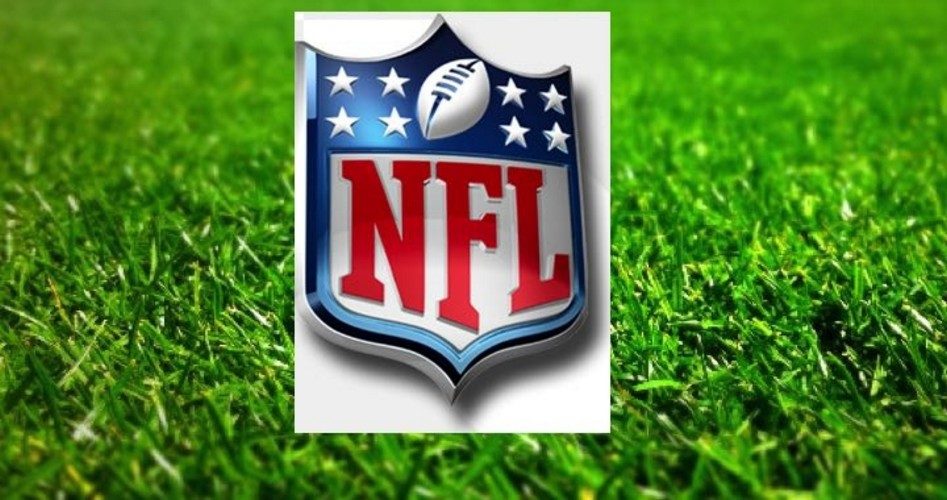
“The NFL players are at it again,” tweeted President Donald Trump after the Thursday night NFL games. “Taking a knee when they should be standing proudly for the National Anthem.”
Former San Francisco 49er quarterback Colin Kaepernick started the protests early in the 2016 football season, and the practice of kneeling during the playing of the National Anthem spread to other players and other teams. “I am not going to stand up to show pride in a flag for a country that oppresses black people,” Kaepernick explained.
Kaepernick’s actions and his remarks were and are considered unpatriotic by millions of Americans, and Trump is one of them. Despite the economic damage the continued protests have done to the NFL brand, many players showed their disdain for the country that has made them millionaires, and are doing so once again.
“Numerous players, from different teams, wanted to show their ‘outrage’ at something that most of them are unable to define,” Trump said. “They make a fortune doing what they love …”
Trump did not question the sincerity of the players, but urged them to “find another way to protest.”
After all, most business establishments avoid interjecting politics into the workplace, careful not to offend customers. Few restaurants, for example, would allow employees to wear campaign buttons or other such paraphernalia while serving patrons. It would be unthinkable for a Walmart greeter to welcome customers by telling them, “Make America Great Again. Vote Trump!”
Trump made this same point in his own inimitable way. “Be happy, be cool! A football game, that fans are paying sooo much money to watch and enjoy, is no place to protest. Most of that money goes to the players anyway. Find another way to protest. Stand proudly for your National Anthem or be Suspended Without Pay!”
Twenty-four teams played preseason games Thursday night, and 15 players from five teams staged various forms of protest. Two players took a knee, three raised their clenched fists, while eight opted to remain in the locker room or left the field as the National Anthem was played. One player stood with his back to the field, while another rested his arm on the shoulder of a fellow player, who was also protesting.
The teams that had players who chose to protest were the Baltimore Ravens, Philadelphia Eagles, Seattle Seahawks, Miami Dolphins, and the Jacksonville Jaguars.
Philadelphia Eagles safety Malcolm Jenkins offered his explanation for the protests in his own “tweet” Thursday night. “Before we enjoy this game lets take some time to ponder that more than 60 percent of the prison population are people of color. The NFL is made up of 70 percent African Americans. What you witness on the field does not represent the reality of everyday America. We are the anomalies.”
Of course, one could retort that both figures are representative of reality. A larger percentage of black Americans are good enough to make NFL rosters, while a larger percentage of black Americans commit crimes. Jenkins did not offer what should be done about either reality, but surely he is not suggesting that the percentage of African American inmates and NFL players be limited to their overall percentage of the population.
In Miami, Dophin wide receivers Albert Wilson and Kenny Stills protested by kneeling. Defensive end Robert Quinn shook his head during the “Star-Spangled Banner,” while holding his right clenched fist high in the air. Kaepernick is no longer in the league, but he tweeted praise for Dolphins’ receiver Kenny Stills. “My brother @kstills continued his protest of systemic oppression by taking a knee … Stay strong brothers!”
Linebacker Telvin Smith of the Jaguars explained why he did not come onto the field until after the anthem, but chose to remain in the tunnel instead. “As a man, I got certain beliefs. You know what I mean? This is not going to be a distraction, and Jacksonville’s not going to become a distraction for this team. I got beliefs. I did what I did. I don’t know if it’s going to be every week, can’t answer if it’s going to be every week. But as a man I’ve got to stand for something. I love my team, I’m dedicated to my teammates, and that’s what we’re talking about. I did what I did. It was love. I hope people see it and respect it. I respect views.”
Fortunately for Smith, he is not being paid for his oratorical ability.
In contrast, in New England, the Patriots observed a moment of silence before the game for Weymouth, Massachusetts police officer Michael Chesna, who was killed in July in the line of duty, and all of the players stood for the Anthem. The Patriots’ opponents, the Washington Redskins, also stood for the Anthem.
The NFL has vacillated on what response to take with players who kneel or otherwise protest during the playing of the National Anthem.
Photo of grass: Animaldetector
Image of NFL: Screenshot of NFL logo


